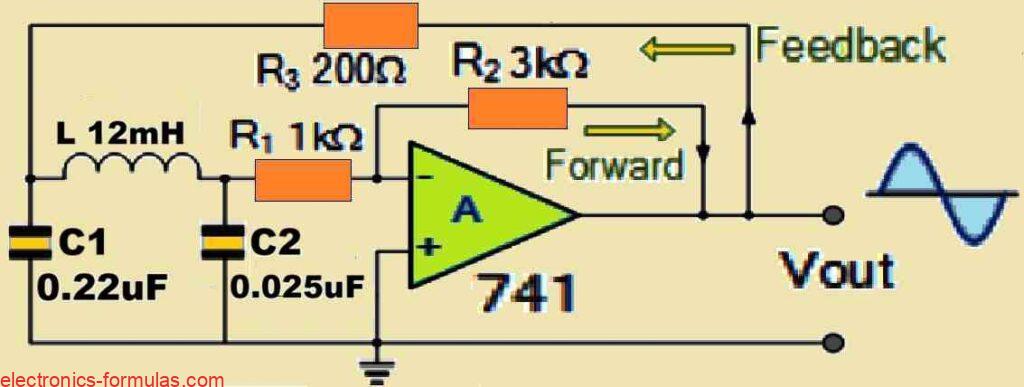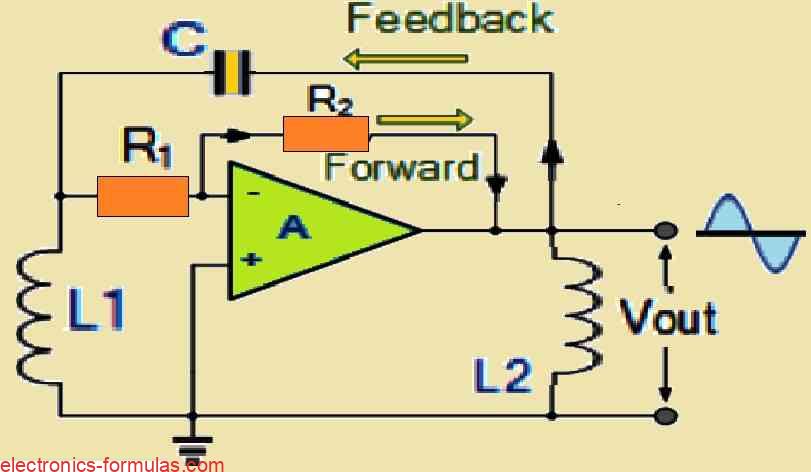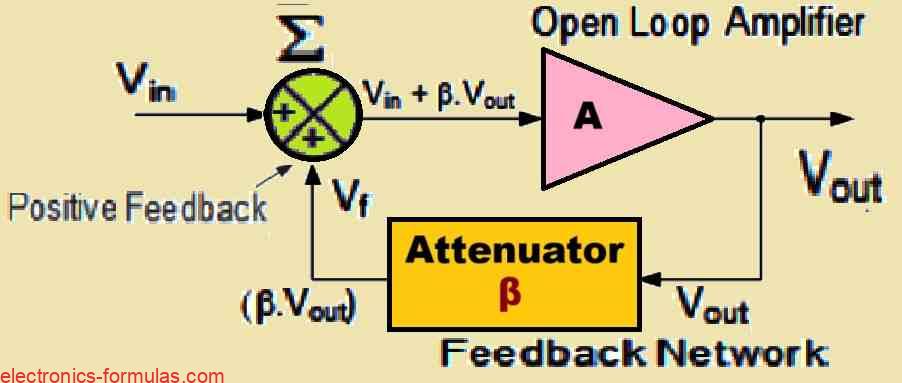Compared to the Hartley oscillator that we looked at in the last lesson, the Colpitts oscillator represents a very different way of designing tuned tank circuits. Similar to the Hartley oscillator which creates a sinusoidal output waveform by implementing an LC resonance sub-circuit between the collector and base of a single-stage transistor (BJT) amplifier, the […]
Calculations
Understanding Hartley Oscillator Circuit, with Calculations
The basic LC Oscillator tank circuit that we discussed in one of our earlier posts has a significant limitation: it cannot alter the magnitude of its output oscillations. This means that the oscillations might be either too large or too little, making it difficult to get the desired results. It might also be difficult for […]
LC Oscillator Circuits: Explained with Calculations
An LC oscillator is a circuit which we can use to transform a direct current (DC) supply voltage into an alternating current (AC) output waveform. This output can exhibit various types of waveform shapes and frequencies which might range from complex forms to simple pure sine waves depending on the specific application requirements. These oscillators […]


